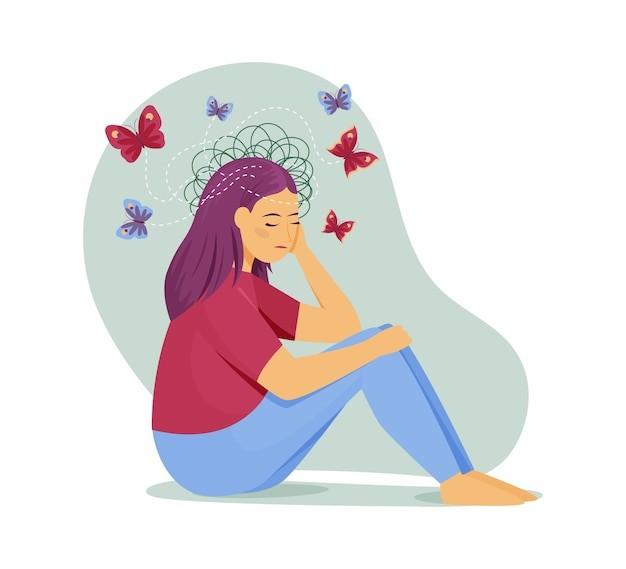MENTAL HEALTH ISSUES ON THE RISE AMONG ADOLESCENT, YOUNG
ADULT

Adolescents' Mental Health






Adolescence is a phase where most young people struggle to fit in. Mental health ailments are more common at this age. They are living in an environment that is constantly changing, and they are flooded with vast amounts of information. Moreover, the advancement of social media plays a pivotal role in redefining everything in their lives, making it harder to dealwith.

Mental health ailments are on the rise in young adolescents and adults. The psychological distress that is also growing among adolescents seems to be rising. But who is responsible—social media or society? Here aresomesignificantcausesofstress:



One of the leading causes of this distress is the hostility towards a child’s academics, aspirations, and identity. They are often misunderstood by their parents while growing up. Negative environments, violence, and abuse can take a toll on theirminds.


Online interactions have now surpassed face-to-face interactions, resulting in loneliness. Apps like Instagram, Snapchat, and Facebook influence users to look and dress certain ways. This leads to unrealistic expectations and standards that can harm their self-confidence. People are most likely to suffer from cyberbullying, which can lead to suicidal tendencies and depression.



Young people are becoming more interested in exploring their individual identities due to the wealth of information available on homosexuality, asexuality, and other forms of non-heterosexuality. Growing ideas of gender equality are prevailing among youths, yet the older generation is conservative about these issues. It makes them hard to open up and can beisolating.


There is a lot of miscommunication about mental wellbeing, which makes ithardfor youngadults toopen up. Someofthemajor concerns are:
• Stressandanxietyrelatedtostudiesandcareers
• Inflictingloneliness duetoalack of friends
• Bodyimageissues
• Troublecommunicating with theirparents
• Traumaduetosexual harassment andbullying
• Conflicts withtheir parents andteachers

Post pandemic mental health issues are on the rise among youths due to uncertainty regarding their academic and career prospects. Lack of support and space make it hard for them to open up. Their opinions are often dismissed stating they are too naive to understand things. These issues further exacerbate various disorders, making them harder to manage.



Emotional disorders are very common among youth. Anxiety disorders, including panic and excessive worry, are more prevalent among adults than youth. Some symptoms include anxiety, depression, and mood swings. It further escalates to hopelessness andsuicidaltendencies.


It is much more prevalent in youth. It is characterisedbydifficultypaying attention and acting without regard for consequences. These disorders affect adolescent education and result in criminal behaviour.




It is characterised by abnormal eating behaviour and obsession that further leads to weight gain and bodyimageissues.



The symptoms include hallucinations and delusions (false beliefs). These symptoms mostly emerge in late adolescence or early adulthood. This impairs the youth's dailylifeactivities andeducation.



It is one of the leading causes of death in young adults. Certain risk factors, including childhood abuse, alcohol abuse, and the stigma against seeking professional help, can lead tosuicide.

It is high time that we change our outlook on mental health. Preventive programmes regarding mental health require a diverse approach to connect with adolescents. Parents should educate themselves about mental health and accept the changes that their children are experiencing. Create an empathetic environment for their children so that they can open up withthem.

Schools and educational institutes must create a safe environmentfortheirstudents.Also,weshouldnormalise the idea of seeking help from counsellors and psychiatrists.







